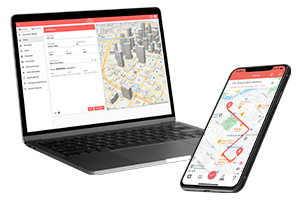May 15, 2020
The goal of our new Case Study series is to educate our users about some common tax-related topics. We wanted to start with the not-so-fortunate cases. We want to present good practices later. To show how much easier it is to claim a tax deduction by keeping and/or retrospectively reconstructing a mileage log with an IRS-proof mileage log software.
So let’s get started!
Case Study #1: Non-existing mileage logs
Regardless of whether citizens live in New York City, Austin, Jackson, or somewhere else, a huge obstacle faced by citizens with tax issues includes giving enough documentation to validate claimed expenses, deductions, and other tax credits. Some ongoing tax court cases give instances of how the absence of substantiation can affect a citizen’s liabilities with the IRS.
On November 23, 2016, a U.S. Tax Court case exemplified this nicely. In said case, a craftsman was denied unverified travel and vehicle expense deductions. The craftsman, who made acrylic canvases, went to a foreign country for an art class but was not qualified to deduct his claimed travel or vehicle costs on Schedule C, as he neglected to validate the sum and timing of these claimed costs. For the greater part of his vehicle costs, he neglected to validate the measures with either a mileage log or any different records. For example, miles driven, dates of trips, or reasons for business outings. Even though he claimed a travel cost deduction of a particular sum on his Schedule C, he asserted a more noteworthy (and subsequently conflicting) travel cost deduction at trial. He also gave no supporting proof other than his dubious and general declaration regarding the claimed uses for air travel, vehicle rental, vehicle insurance, fuel, or craft supplies allegedly utilized during the excursion. The Tax Court ruled that the craftsman’s/reasoning to claim his travel expenses was not validated with the evidence turned in.
He didn’t have any proper data and documents about the expenses he wanted to claim. Because of this, his case was dismissed.
Mr. Brown
Mr. Brown was likewise not qualified for deducting costs identified with lodging rentals of what the IRS permitted. He neglected to validate the extra costs. He wasn’t qualified for a derivation for vehicle costs, meals, and amusement costs under Internal Revenue Code 274(d) as he again neglected to prove these expenses. Mr. Brown, to advance his business, leased lodging space, and led week-by-week gatherings, meetings, and presentations. He created invoices without his name or the name of his business written on the receipt. There was no clarification on the receipt regarding the business nature of the rental. The Tax Court saw this document as lacking. There were no clarifications regarding the business nature behind the meals or to the solicitor’s business relationship with the person(s) with whom he allegedly dined.
So please note, even if you prepared some kind of document for the substantiation of your claims, it is crucial, that the documents comply with the regulations of the IRS.
MileageWise complies with all the legal requirements constituted by the IRS.
It helps you with a nice and logical interface to guide you through the tasks. You don’t need to understand the underlying rules or the operation. MileageWise takes this responsibility off of your shoulders by automatically paying attention to compliance with the laws of the period.
The Built-In IRS Auditor checks and corrects over 70 different logical conflicts in your mileage log and the intelligent AI Wizard feature helps you with making up for your forgotten trips.
This way you can pass any IRS Audit, at any time. With MileageWise.




